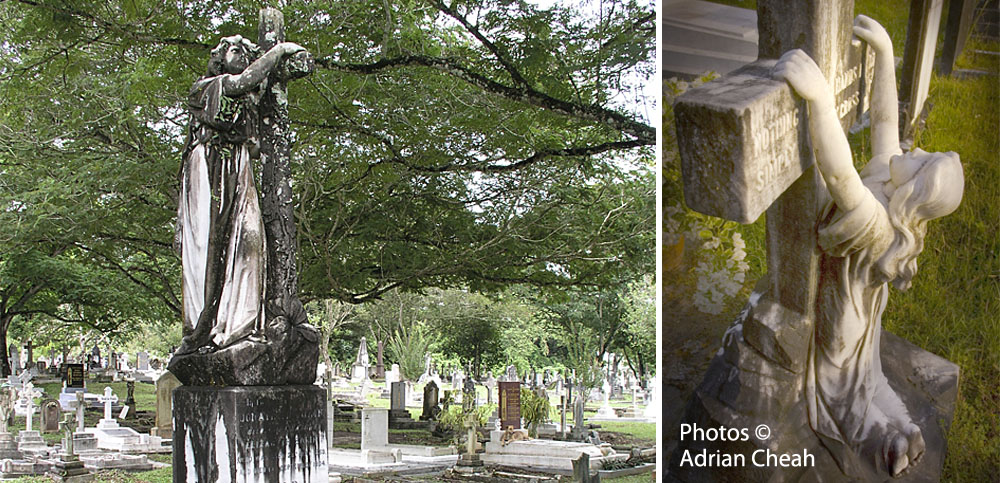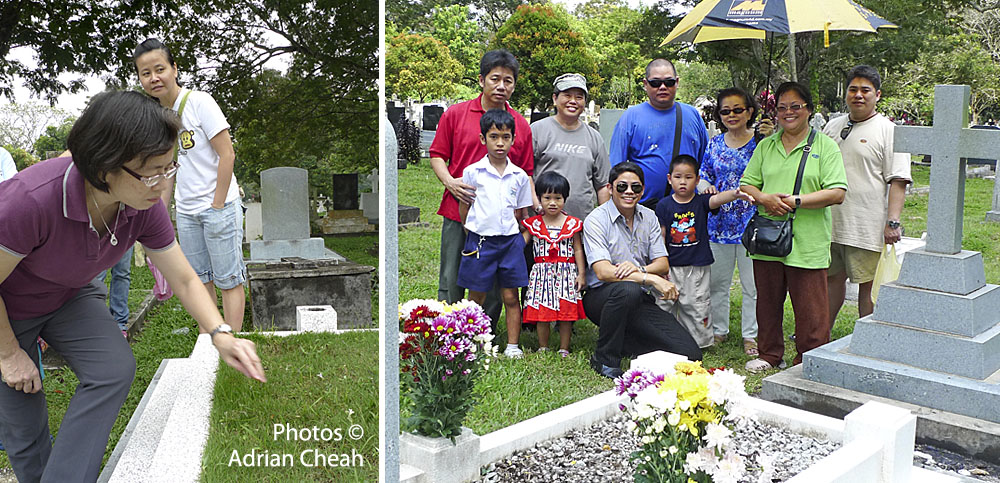Remembering loved ones on All Souls' Day

The feast of All Souls' Day serves as a poignant reminder, urging us to extend our heartfelt prayers for the departed, helping them on their journey to heaven. We pray not only for those we know and love but also for “neglected souls”. This is regarded as an act of charity.
Across diverse religious traditions, the act of praying for the departed is not merely a suggestion but a profound imperative. Different faiths prescribe different rituals for remembering the dead. For instance, within Islam, Muslims believe that the departed are “freed” from their entombment once a year on Ramadhan, enabling them to visit members of their living relatives. On the first day of Syawal, graves must be cleaned and prayers performed at the gravesite. Buddhists, in their rich tradition, observe the annual Ullambana dedicated to console ancestors and other spirits. This tradition's origins trace back to the venerable Buddha Shakyamuni, underscoring the enduring legacy of remembrance and reverence. One major event in the Chinese calendar, observed by Chinese communities all over the world is Cheng Beng. This day of honouring would be observed as a time of obeisance, remembrance and veneration for departed ancestors and immediate family members. These global celebrations bridge continents and unites communities, illustrating the universal essence of honouring those who have departed from this mortal realm.

Catholics also hold a deeply reverent tradition of honouring their dearly departed especially on All Souls' Day. During this special time of remembrance, they pray for souls (especially those believed to be in purgatory) so that they may be hurried along the path to heaven. Be that as it may, Catholics still bear in mind that according to St. Matthew, not all sins can be forgiven. Thus it is said that, "and whosoever shall speak a word against the Son of man, it shall be forgiven him: but he that shall speak against the Holy Ghost, it shall not be forgiven him, neither in this world, nor in the world to come." (Matthew 12:32)

Catholics, when paying homage to their departed loved ones at gravesites, often spruce up the graves, place flowers and light candles as they offer up prayers.

Usually a week before All Souls' Day, my family and I would make our way to the Western Road cemetery where the final resting place of our grandparents and most of our granduncles, grandaunties, uncles, aunties and relatives is nestled. Having visited the cemetery without fail every year, we find ourselves retracing our footsteps on very familiar ground.

"Our grandparents are over there," Sandra, my late sister, used to announce, "and eight plots down is our Auntie Catherine".
In the early 1980s, my late father reconstructed various parts of the family gravesite to fit numerous urns. Having a family of eight children, my father (who also had five siblings) knew in his wisdom that this would indeed be the most practical way of keeping everyone in the family together, even in death.


This concept seemed to have gained traction, with other graves in the new section of the Western Road cemetery embracing this space-saving approach.
Gathering as a family, we would light candles and join in reciting the rosary at each of the graves we visit, united in the shared hope that our prayers would be heard and answered. Perhaps it is the metaphysical ambience of being surrounded by so many graves that we always keep our senses attuned to the smallest sign of any ''presence”. At times, the ethereal connection is so palpable that we almost feel their spiritual presence alongside us.

When observing All Souls' Day, Catholics are actually re-enacting the actions of a biblical character called Judas Maccabeus. He believed that by praying for a band of pagan soldiers he had just buried, they would be delivered from their sins and allowed to enter the gates of heaven.
The significance of this tradition extends beyond religious boundaries, serving as a poignant reminder for people of all ages and diverse backgrounds that life does not go on forever. A dying candle on a tombstone soberly reminds us of our fleeting existence in a material world. Much like a song that begins, enchants and ultimately fades into silence, we too will live, laugh and cry before we embark on another journey.

The ancient Aztecs held a belief that life is but a dream and death serves as the awakening to true reality. In short, most religions and cultures across the globe teach us that the material world is only temporal and any attempt to cling to it is an exercise in futility.

The feast of All Souls' Day, a sacred occasion observed on the 2 November annually, holds a special place in the hearts of Catholics. This day is marked by the customary celebration of requiem masses in churches. The priests officiating these solemn masses don vestments of distinctive colours, each imbued with its own profound symbolism. They may wear black, signifying mourning for the departed, violet, symbolising penance and reflection, or white, representing the hopeful anticipation of resurrection.
---------------------------------------------------------
Written and photographed by Adrian Cheah
© All rights reserved.
Updated 2 November 2023